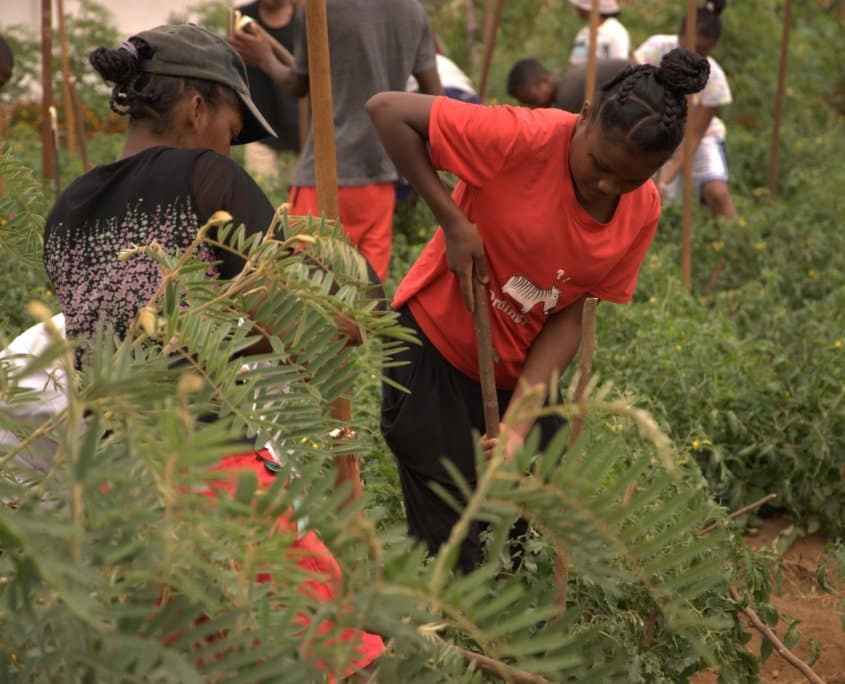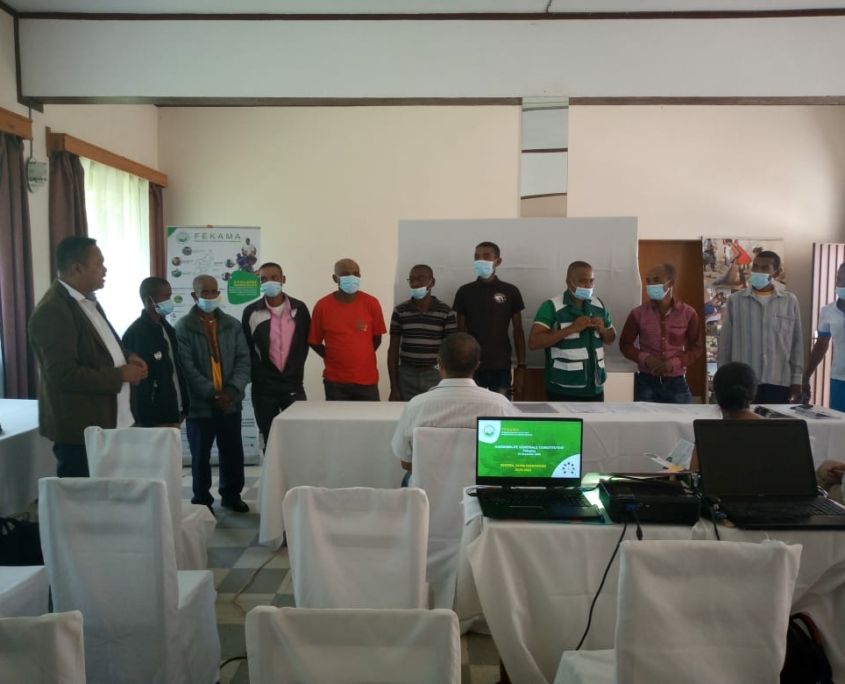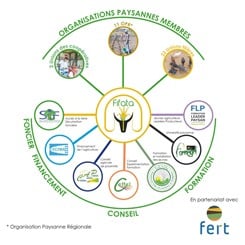Training to ensure the next generation of farmers
Fekama is a scheme of initial agricultural training in three years for rural youth. This scheme was born in the early 2000s to fill in the gap in training and to ensure the succession of family farms and leaders of farmers’ organizations. In partnership with CNEAP, Fifata and Fert have created five agricultural colleges federated since 2014 within Fekama. The training consists of two years of training at the college and one year of internships on farms. A support scheme for professional insertion is also offered to young graduates. For two years after their training, they receive individual support from an agricultural advisor, a connection with technical and financial partners and a grant to help them set up.
A new step towards viability
After six years of “informal” functioning and the building of a strategy aligned with Fifata’s strategy, Fekama officially adopted its statutes during its constitutive General Assembly on December 18, 2020.
The new Board of Directors is composed of two representatives of the young graduates, a representative of the Fifata Board of Directors and its President.
The farmers’ committees, associations supervising the functioning of the agricultural colleges, have also been institutionalized.
During their four years of mandate, the elected members will contribute to the continuous improvement of the actions and to the autonomy of management of the financial and human resources. They will also work to increase Fekama’s visibility with technical and financial partners and in the territories of the colleges, particularly in terms of environmental protection.
The Fifata group will keep its involvement in the federation to ensure that the common vision of “a professional, competitive and growing family farming” is respected.
A training scheme recognized by the Malagasy FOs
Fekama receives the support of regional farmers’ organizations, members of Fifata. They are involved in the local management of the colleges, thus demonstrating their conviction of Fekama’s contribution to the improvement of farmers’ living conditions and to the preparation of their leaders’ succession. In some regions, other RFOs that are not members of Fifata have a place on the farmers’ committee.
As proof of Fekama’s reputation in the training sector, a representative of the Ministry of Agriculture, Livestock and Fisheries and a representative of the Governor of the Vakinankaratra Region honored us with their presence at this constitutive GA.
The institutional viability of an organization is a long road. Nearly 20 years after Fifata’s first initiatives, the agricultural training scheme is today an autonomous organization but anchored within the Fifata group.






